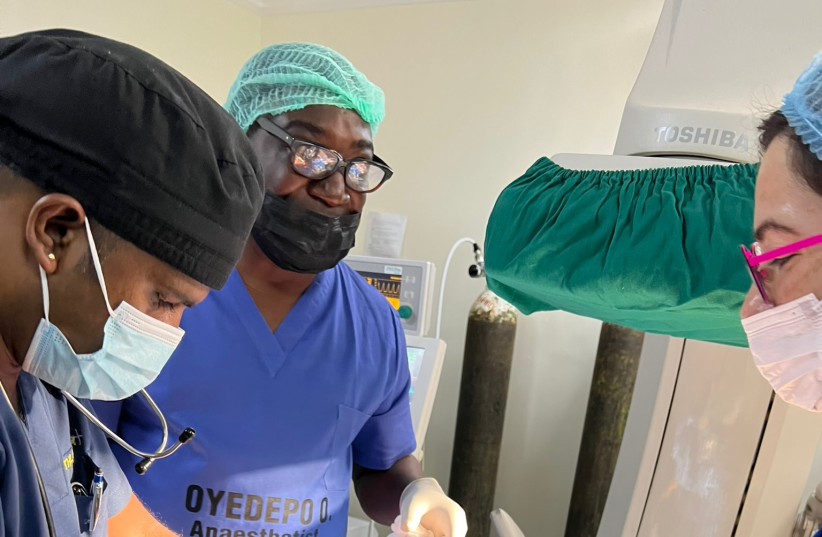Five ophthalmologists at Sheba Medical Center at Tel Hashomer are on a five-day mission in Nigeria to provide advanced treatment and training for local specialist medical teams and establish a new intra-arterial chemotherapy center.
The humanitarian mission to Ilorin – the capital city of Kwara State and the seventh largest in the country – is dedicated to improving health outcomes for pediatric eye cancer patients in the area and to increasing the capacity for long-term quality optical care in southern Nigeria.
It is part of Sheba’s “Global Impact” initiative, which is dedicated to building bridges to prosperity through healthcare, innovating to implement cutting-edge health solutions globally and fostering critical relationships to strengthen fragile healthcare systems.
Retinoblastoma: A frequently-occurring eye cancer in children
With an estimated one in 15,000 Nigerian children inflicted with pediatric ocular cancer, the mission will focus on treating those with retinoblastoma, which can be deadly if not caught early. The team treating the patients consists of five specialists led by Prof. Ido Didi Fabian – an ocular oncology specialist at Sheba’s Goldschleger Eye.

Retinoblastoma, although rare in the West, is the most frequently occurring primary intraocular tumor of childhood in Third-World countries. Developing from the immature cells of a retina, most retinoblastoma cases occur before the age of five years. While a cure is often achieved where appropriate treatment is instituted early in the disease, late diagnosis often leads to unsuccessful treatment interventions. In some developing countries in Africa, it is one of the most frequently presenting solid tumors seen in childhood. In Nigeria, it is the second most common childhood tumor. About a third of all tumors are said to have been genetically determined, and less than 10% have a positive family history.
More than 50 years after the first cases of retinoblastoma were reported in Nigeria, there is a persistent and urgent need to improve early detection rates and access to effective treatment strategies.
“Intra-arterial chemotherapy is a highly effective treatment modality that can make a significant difference in the outcome of cancer treatment, and it is something that we have a lot of experience with at Sheba,” said Fabian. “Together with my Sheba colleagues, I am honored to have the opportunity to share our knowledge and skills with our local colleagues in Nigeria and to work together to treat infants with this life-saving treatment.”
“Together with my Sheba colleagues, I am honored to have the opportunity to share our knowledge and skills with our local colleagues in Nigeria and to work together to treat infants with this life-saving treatment.”
Prof. Ido Didi Fabian
Intra-arterial chemotherapy is a treatment option for certain types of cancer that involves delivering chemotherapy directly to the tumor through a catheter inserted into an artery. This method allows for higher doses of chemotherapy to be delivered directly to the tumor while minimizing the exposure of healthy tissue to the chemotherapy drugs.
“The mission to Nigeria brought some of the most talented physicians we can offer to that country, enabling us to not only treat many patients but to also sow the seeds for future advancement in the region,” said Yoel Har-Even, director of the international division & resource development at Sheba Global. “There is a great sense of pride to be able to contribute to humankind and offer hope without boundaries.”
